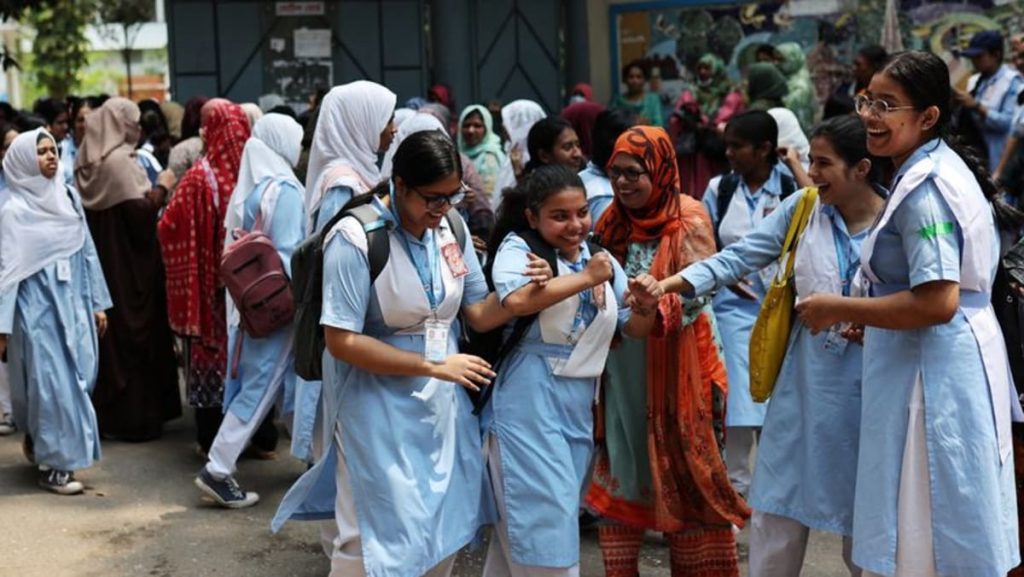Schools in Bangladesh have reopened after being closed due to a severe heatwave that caused temperatures to soar above 40 degrees Celsius. The country’s education ministry has decided to hold classes on Saturdays until further notice to make up for lost time. The decision has been welcomed by parents, who believe it will help their children catch up on missed lessons.
Experts have warned that the heatwave could exacerbate inequalities and widen the learning gap between developing and developed nations in the tropics. Climate change is said to be causing more frequent, severe, and lengthy heatwaves during the summer months. The UN children’s agency estimates that one in three children in low-lying Bangladesh, nearly 20 million children, are affected by these climate changes on a daily basis.
In addition to the heatwave, a fire broke out in the Sundarbans, the world’s largest mangrove forest that is home to the Royal Bengal tiger. The fire, which spread across three acres, was brought under control by officials. The intense heatwaves have also caused water shortages and frequent power cuts, impacting the country’s crucial apparel sector, which is a major contributor to exports and supplies retailers like H&M, Walmart, and Gap Inc.
Despite the challenges posed by the heatwave, the government has decided to reopen schools to prepare students for exams. The education minister has assured that schools will open on Fridays if necessary to complete the curriculum. Many parents believe that their children do not want to study at home and that returning to school will help them make up for the lost time. This decision comes at a time when experts are sounding alarm bells about the impact of climate change on the education system and the welfare of children in the region.
The reopening of schools in Bangladesh highlights the country’s resilience in the face of natural disasters and extreme weather events. By continuing with education despite the challenges posed by the heatwave, Bangladesh is demonstrating a commitment to ensuring that its students receive a quality education. The decision to hold classes on Saturdays and possibly Fridays shows a dedication to completing the curriculum and helping students succeed academically in difficult circumstances.
As Bangladesh grapples with the effects of climate change, including heatwaves, water shortages, and power cuts, the reopening of schools is a ray of hope for many families. By providing students with the opportunity to continue their education and catch up on missed lessons, the government is taking a proactive stance in ensuring that the country’s youth are not left behind. Despite the challenges, Bangladesh is moving forward with a determination to build a brighter future for its children, even in the face of adversity.













